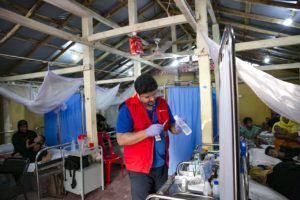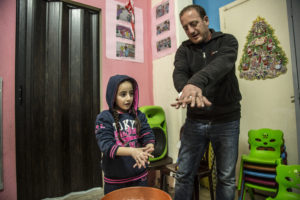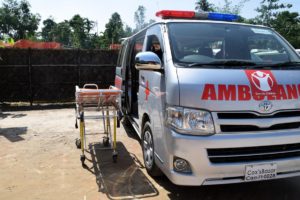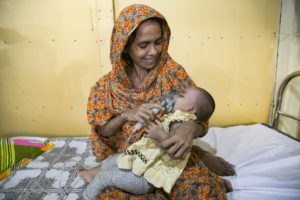The Big Heart Foundation Allocates US $500,000 To Mitigate Impact Of COVID-19 Amongst Refugee Populations
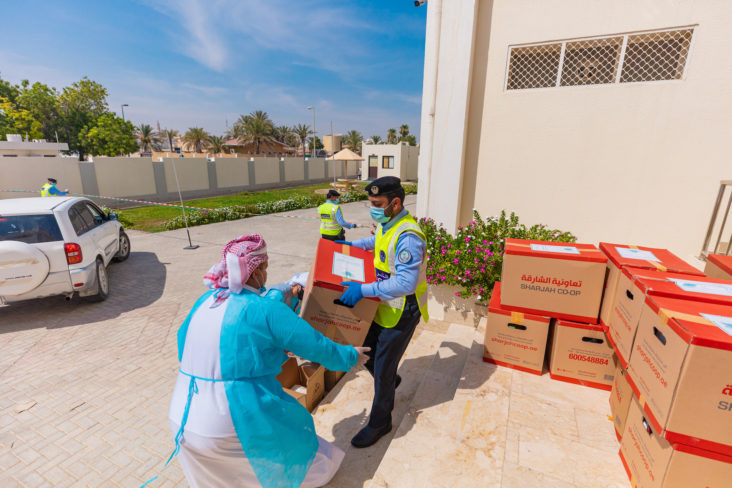
Sharjah-based global humanitarian organization, The Big Heart Foundation (TBHF), has announced the allocation of US$500,000 to boost healthcare capacities in sites hosting refugee and internally displaced people (IDP) in Jordan, Palestine, Lebanon, Bangladesh and Kenya.
This follows the global call made by Her Highness Sheikha Jawaher bint Mohammed Al Qasimi, wife of His Highness The Ruler of Sharjah, Chairperson of The Big Heart Foundation, and UNHCR Eminent Advocate for Refugee Children,in April 2020 to demonstrate solidarity and cooperation over the profound health, social, and economic concerns of refugees across these five nations under TBHF’s COVID-19response fundraising campaign ‘Support Knows No Safe Distance’.
The amount allocated to the current projects represents a part of the total funds raised by TBHF, and is being mobilized by the organization to implement the first phase of their planned relief projects in the five targeted locations.
Furthering its commitment to protect underprivileged and vulnerable groups, this latest TBHF campaign seeks to mitigate the impact of the pandemic in refugee settlements as well as monitor the latest developments in the health situation across various refugee and IDP sites around the world.
With coordinated support from its key partners in these nations, TBHF has mobilized resources and prioritized activities to support programmes in health, educational awareness, and water, sanitation and hygiene (WASH). Each organization will receive a sum of US$100,000 each to address the most pressing protection, lifesaving and integration needs of refugees and displaced populations across these five countries.
In the UAE, TBHF has till date, provided food supplies to 660 families and 1,400 individuals who have been affected directly or indirectly by the spread of COVID-19.
Commenting on the campaign’s objectives and its allocation of funds to settlements hosting refugees and displaced people, Mariam Al Hammadi, Director of TBHF, said: “These overcrowded settlements are characterized by weak infrastructural facilities, poor healthcare systems, and limited access to resources. These hardships jeopardize the health and safety of those living in these high-risk settlements – a risk that extends to the larger community, making it imperative to step up efforts to mitigate any negative impact.
“Through this campaign, we are providing refugee camps with essential resources and medical supplies, including personal protective equipment (PPE) kits. One of the most important factors in stopping the pandemic from taking root is to pay close attention to details. Measures that may seem simple or unnecessary elsewhere could be life-saving for the world’s poorest communities,” she added.
Al Hammadi lauded the immediate and timely response of both individuals and organizations from across the world in support of the campaign. She remarked that TBHF is committed to boosting the health system’s readiness, particularly in countries that face serious challenges in the wake of the COVID-19 pandemic. TBHF’s key objective is to develop the second phase of the campaign in coordination with its regional and international partners, she added.
Critical PPE kits and essential medical supplies for refugee camps in Kenya
Two of the most well-known refugee camps in Africa– Kakumaand Dadaab camps in Kenya – will benefit from TBHF’s US$100,000 project that seeks to provide scarce PPE (personal protective equipment) and medical supplies, in addition to providing support and training in infection, prevention and control activities to bolster service delivery to communities residing here.
International Rescue Committee (IRC), an organization directly supporting vulnerable refugee populations in Kenya since 1992, is tasked with ensuring availability of adequate PPEs in the heavily populated Dadaab and Kakuma refugee camps over a six-month period. These kits include examination gloves, industrial gloves, surgical face masks, N95 face masks, disposable goggles, and disposable gowns.
Isolation units at the camps will also be equipped with vital diagnostic equipment to accurately detect and treat the virus.
More than 170 health workers in the two camps, 250 refugee staff, 32 community leaders and 25 religious leaders in Dadaab will directly benefit from TBHF’s project while critical information, education and communication (IEC) materials will impact 1,900 members in both the camps.
Water, sanitation and hygiene in focus at Rohingya refugee camps in Bangladesh
With almost 30,000 direct beneficiaries including health staff and indirectly impacting 120,000 people from the wider community, TBHF’s COVID-19 response efforts in Bangladesh in partnership with UK based non-profit Penny Appeal, seeks to improve public health response capacity by providing medical and WASH (water, sanitation and hygiene) supplies via health facilities situated in the Rohingya refugee camps and surrounding host communities in Cox’s bazar.
Boosting infection, prevention and control measures in Lebanon
Lebanon, hosting one of the highest number of refugees per capita in the world, will be able to address the healthcare and wellbeing needs of 1,000 child refugees and their families, under the aegis of Save the Children, an organization responding to emergency and development needs of children, adolescents, youth and families in the country for more than six decades.
In addition, the funds will also meet the PPE needs of staff and health partners of Save the Children. The two-month period of the project also aims to focus on protecting the mental health of young children and to provide them with psychosocial support, a total of 150 Happy Kids kits will be distributed to needy families.
The Happy Kid Kit contains recreational resources that enable children to stay active and engaged while at home, and express their feelings through painting, drawing, and other activities, to ease the psychological distress caused by the crisis. The kit will be distributed to those kids who are staying in isolation on account of the quarantining of a family member or caregiver.
Emergency healthcare support for refugees in Jordan
Together with UNHCR, the UN Refugee Agency, The Big Heart Foundation will provide emergency treatment and healthcare support to nearly 200 displaced individuals taking refuge in the ZataariRefugee Camp in Jordan.
To protect them from the risks posed by the pandemic, UNHCR will utilize TBHF’s funds to safeguard refugees with underlying health conditions by boosting their access to health referrals. Also, lifesaving emergency treatment will be administered to those in need.
Strengthening infection control measures in Gaza Strip in occupied Palestine
To strengthen its preparedness and COVID-19 response capacities in the Gaza Strip in occupied Palestine, TBHF is working with the United Nations Relief and Works Agency for Palestine Refugees in the Near East (UNRWA) to procure much-needed protective medical materials and supplies including 100,000 surgical masks, 20,000 gowns, 7,610 handy paper towels and appropriate intensive disinfection cleaning material.
These infection control measures will support the UN agency’s frontline staff who are in direct contact with an estimated 3,000 beneficiaries. An estimated 100,000 patients visiting UNRWA health centers with respiratory problems will be provided masks.
As the world continues to grapple with the coronavirus (COVID-19) pandemic, the forcibly displaced people and refugee communities around the world are facing a health risk of unparalleled magnitude. From lack of access to basic health and hygiene facilities or difficulties in complying with physical distancing measures in crowded settlements, the outbreak of a health crisis of unparalleled magnitude has hit them the hardest.
Individuals and organizations who wish to contribute to the ‘Support Knows No Safe Distance Campaign’, can do so on the TBHF website www.tbhf.ae.


